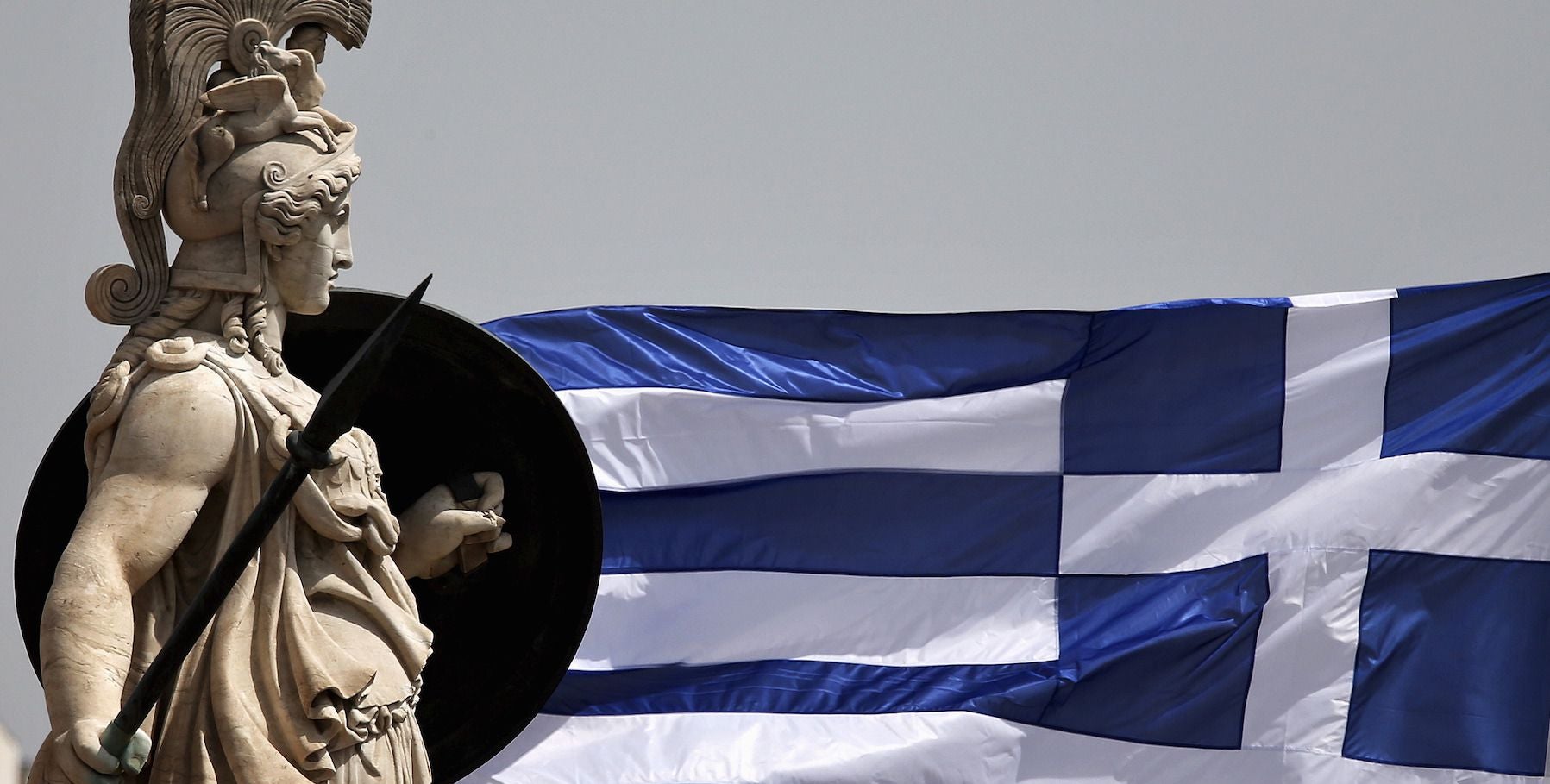Greece should be inspired by its golden age of economic growth—1000 BC
The word “economy” traces its roots to ancient Greece, though it would have meant something a little different back then—more about managing the affairs of the household. The Greeks could certainly use a little help arranging their affairs at the moment—the country is broke, its banks are shut, everyone is shouting at each other, and the country faces the possibility of another depression upon ejection from the euro zone.


The word “economy” traces its roots to ancient Greece, though it would have meant something a little different back then—more about managing the affairs of the household. The Greeks could certainly use a little help arranging their affairs at the moment—the country is broke, its banks are shut, everyone is shouting at each other, and the country faces the possibility of another depression upon ejection from the euro zone.
Our word for “democracy”also comes from ancient Greece but, despite its incredible political and cultural influence, its economy was somewhat primitive and disorganized despite its high-minded democratic ideals. “Ancient Greek values held in low esteem economic activities that were not subordinated to the traditional activities of managing the family farm and obtaining goods for necessary consumption,” one analysis suggests.
Now, a professor at Stanford has conducted new research that suggests the “strikingly democratic” Greek system between 1000 BC and 300 BC was far more prosperous than many believe. Ancient Greece had “impressive rates of economic growth that were unparalleled by its contemporaries in antiquity,” according to professor Josiah Ober.
“Why is it that a society that was thought to be relatively poor and not growing was able to do so remarkably much with culture?” says Ober, who always suspected that past analysis of the Greek economy underestimated its development.
He and his team pored over raw data like population and urbanization levels in Athens and more than a thousand city-states in the Archaic and Classical periods of ancient Greece, plus some extrapolation. ”It’s extremely difficult to measure economic growth even today,” Ober says. “Of course we don’t have anything like the data [from ancient Greece] that, say, Amazon would have of your buying habits.”
The proxy data included the floor plans of Greek houses and the amounts of cash that was found within them, driven by the oldest form of financial risk avoidance: hoarding money. Ober says:
The tendency of Greeks in times of crisis was to bury the loot. They don’t have the same kinds of investment opportunities we have, but they tend to put their coin under the floor of the house or wherever it might be. People frequently, if the crisis was bad, never came back and got the loot.
Ober’s analysis showed the Greek economy ”increased in terms of total number of people somewhere in excess of 10 times to 15 times over about a 500-year period.” In this time, the rate of consumption per person would have about doubled. This is “spectacular” growth for the times—and would be pretty good for Greece in its current state, even.
Indeed, perhaps not much has changed in the past 2,500 years. Greeks are still hiding their cash under the mattress in times of crisis and they are still facing hard choices imposed by foreign powers, as the island of Melos faced in 416 BC.